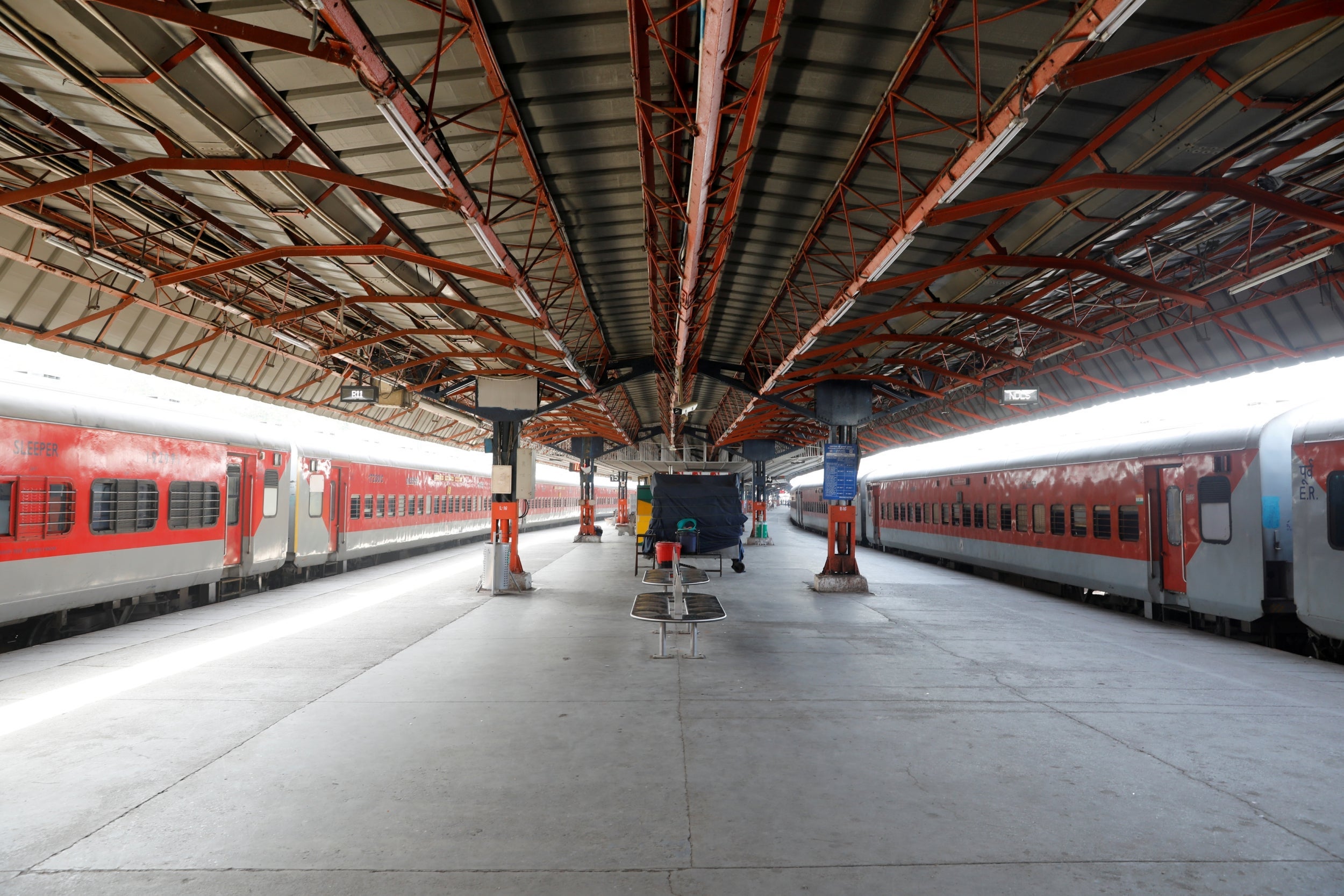Coronavirus: India goes on lockdown with curfews in Delhi as trains and domestic flights suspended
Measures in place until 31 March, but likely to be extended, as Modi urges public to 'follow the instructions seriously'

India’s capital observed the first day of an official lockdown on Monday as state and federal governments expanded measures to try and stop the spread of coronavirus in the country.
Delhi’s lockdown started at 6am and was, like many of India’s virus containment measures, scheduled to run at least until the end of the month. There is an expectation that most will be extended into April.
Streets were mainly deserted after chief minister Arvind Kejriwal announced a complete shutdown of almost all public transport, shops and private offices, with only “essential services” like food stores, pharmacies, hospitals and some government agencies remaining in operation.
Mr Kejriwal called the lockdown an “extreme step”, coming as Delhi’s number of coronavirus cases rose to 30 on Monday, amid 415 cases and eight deaths nationwide. “People are required to stay at home and come out only for basic services within the vicinity of their residences while strictly following social distancing guidelines,” the Delhi government order said.
Mumbai, India’s business and entertainment hub, was among 80 cities and mostly urban districts across the country to declare a similar lockdown would be in place from Tuesday onwards. The city is the capital of Maharashtra, the state with the most coronavirus cases in India.
"Despite multiple requests, people are not following rules. This compelled the government to impose the curfew," said Uddhav Thackeray, Maharashtra’s chief minister.
Before the lockdowns were made official, India observed a voluntary all-day “people’s curfew” on Sunday, called by prime minister Narendra Modi and described as a “litmus test” of the country’s ability to rally together and stave off what health experts are concerned is a looming epidemic.
The stricter measures came after Mr Modi said on Twitter that many were not taking the virus containment seriously. “Please save yourself, save your family, follow the instructions seriously," he said.
Under India’s federal system, matters like city-wide lockdowns are a devolved affair. Nonetheless, they follow a similar pattern - all are being unforced under the colonial-era Epidemic Diseases Act, 1897, and anyone found violating a curfew faces the same punishment - six months in jail or a Rs1,000 (£11.30) fine.
The central government is also doing its part, however, and has announced that from Wednesday all domestic flights will be suspended nationwide.
It adds to a complete ban on international flights landing in India that has been in place since Saturday night, and comes as many states sealed their land borders to prevent the spread of infected travellers fleeing locked down cities for the countryside. About 144 million people travelled on domestic flights last year.
Late on Sunday, train services were suspended until 31 March while crowds were still waiting to board. The suspension included major long-distance trains and public transit in India's big cities, exempting only freight. The New Delhi Railway Station, usually teeming with activity, was empty on Monday.
Based on its official count of case numbers, India’s actions in enforcing lockdowns and travel bans seem above and beyond those of other countries at similar points in their coronavirus outbreaks.
But health experts have said the true number of cases is likely far higher in the world’s second-most populous country, and that the extent of government action reflects that.
Amid criticism for limiting its testing only to international travellers and their contacts, the health ministry has now expanded it to include more people in hospital with acute respiratory symptoms, and a spike in cases is expected to come.
Speaking at a briefing in Delhi on Sunday, senior health ministry official Lav Agarwal said the government’s focus was not on testing but on measures to deny the virus opportunities to spread. “Our biggest challenge is how do we break this chain of transmission,” he said.
Join our commenting forum
Join thought-provoking conversations, follow other Independent readers and see their replies
0Comments